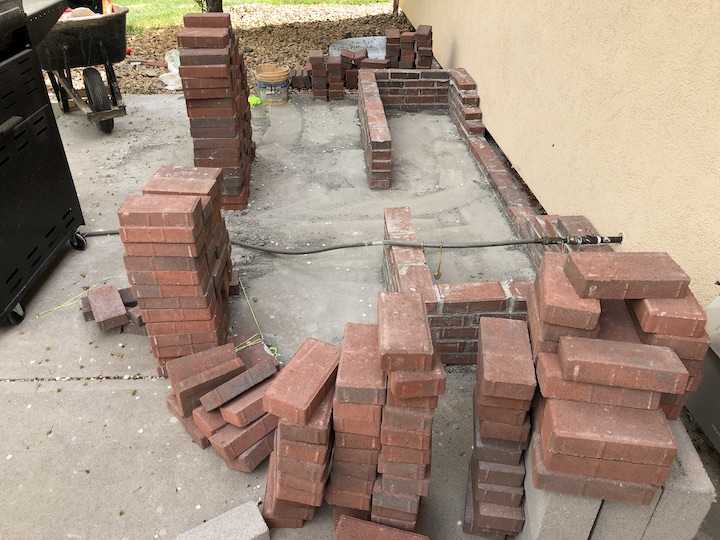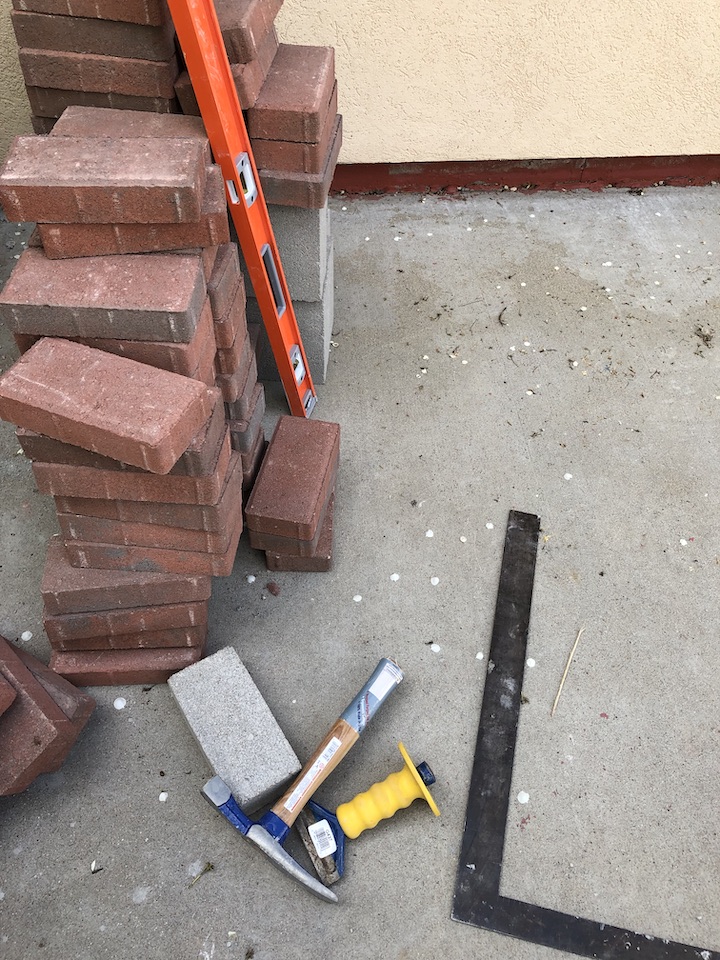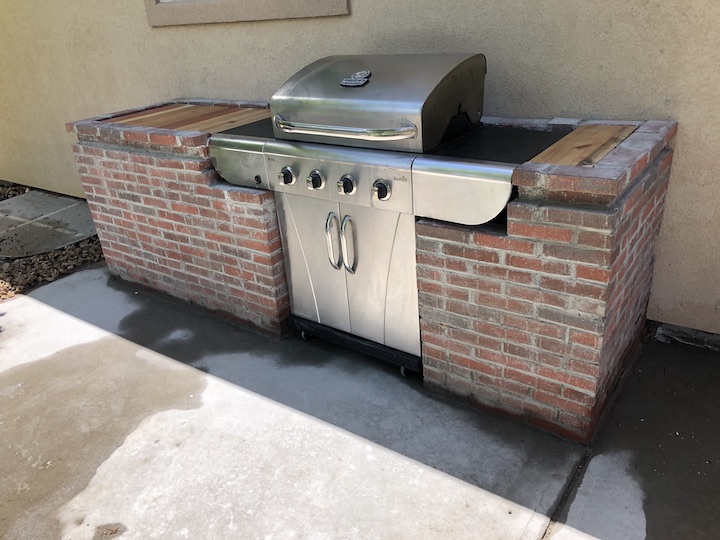FIRST TIME AS A BRICKLAYER
After I got out of the US Navy, I worked for almost a year as an apprentice bricklayer. I wasn’t very good at it. I had trouble keeping my work level, straight, and plumb. In addition, I was too slow, and my foreman (who was my father-in-law) was often screaming at me, telling me I needed to go faster. The money was good, but I didn’t like the work, and after a few months I began to make plans to quit and go to Bible School. I have never regretted that decision. I was in touch with something deep in my soul that would lead me to my calling as a teacher/pas
tor/philosopher.
A little over a week ago I decided that I could improve the functionality and the aesthetics of the grilling area in our backyard if I built a cabinet around our grill. Brick was the best material for this work. I had access to a ¾ ton truck, some free time, and some much-welcomed good weather, so I decided I would take on this project.
I went to Lowe’s and purchased a little over three thousand pounds of brick, some mortar, and a thousand pounds of sand. Loading the material into the truck was easy, Lowe’s had a forklift and a forklift driver who placed the bricks, mortar, and and into the bed of the truck effortless. Unloading the truck was considerably more difficult, since I had to move everything by hand from the front driveway to the backyard using only a wheelbarrow.

Once I got all of the material moved, I laid out the project, mixed the mortar, and began laying the bricks. I worked on the project for several days, usually spending 4-6 hours a day on the project.
SECOND TIME AS A BRICKLAYER
The work was physically demanding. I was lifting (often heavy weights), bending, and stretching. It was also mentally challenging. Although an experienced bricklayer would have found this easy, for me to keep the project level, straight, and plumb took constant mental vigilance. I finished the project a

couple of days ago and am pleased with the finished product. And it is, in fact, level, straight, and plumb.
What is interesting is how much I enjoyed the work. For me it was challenging, mentally and physically, but notimpossible. While I was doing the work, I didn’t want to stop to eat and was annoyed with small interruptions. At the end of the day, when I was losing daylight, I didn’t want to quit. I was in the zone, completely absorbed in the work. This is what Mihaly Csikszentmihalyi described, in 1975, as flow.
It is not unusual for me to be in the zone. I am often in the zone when counseling, teaching, preaching or preparing to teach or preach. What made this project different from my normal activities was the physical requirement, which I enjoyed.
MEANINGFUL WORK
People were created to work, and without meaningful, challenging work we lose our way. But in our capitalistic society, this kind of work is hard to find. Too often work is associated with an unpleasant foreman or supervisor, a need to hurry in order to increase profit, or a need to do something which has little meaning beyond getting paid at the end of the month.
 I am not ever going to endorse communism. But Karl Marx wasn’t all wrong. A capitalistic society does lend itself to the alienation of the worker. Many young airmen and high school students spend much time and energy thinking about how they can acquire more wealth. They find the idea of vocation and flow to be unrealistic.
I am not ever going to endorse communism. But Karl Marx wasn’t all wrong. A capitalistic society does lend itself to the alienation of the worker. Many young airmen and high school students spend much time and energy thinking about how they can acquire more wealth. They find the idea of vocation and flow to be unrealistic.
When I think back on my first bricklaying experience, I was wrong. It wasn’t the work that I didn’t like, rather it was the way the work was done. If I had been left alone to go at my pace, to perfect my craft, and build buildings that would have been beneficial to my community, I think I would have enjoyed being a bricklayer. However, no one ever suggested that laying bricks was about more than getting paid at the end of the week.
I really want young people to know that work is about more than making money. It is about finding flow, doing something meaningful, and working with others on something that is bigger than you. As I teach these ideas I feel like I am a lonely voice crying out in the wilderness. So much of what students hear in school and at home is that they need to make money. This isn’t all wrong, we do need some money to survive. But when work becomes all about money, work weeks are too long and weekends too short.